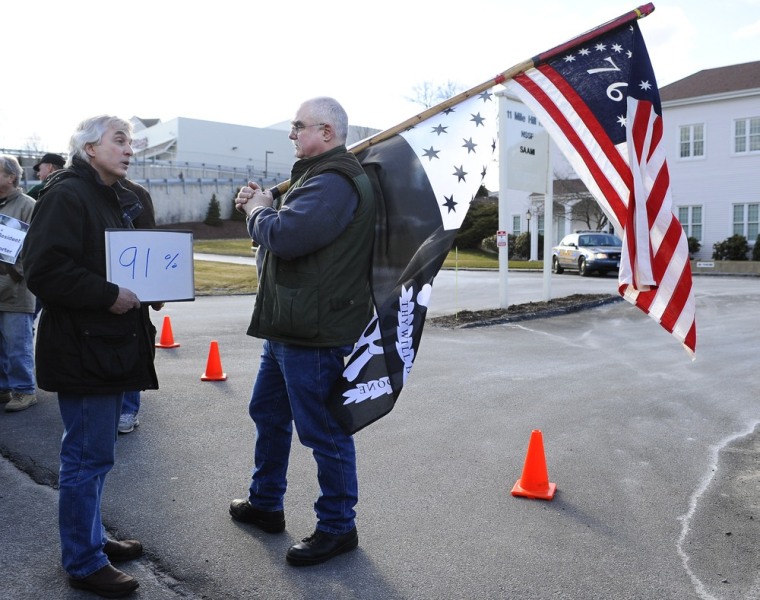Strong majorities of Americans say they favor stricter gun laws, including an assault-weapons ban and universal background checks for private gun sales, according to a new national Morning Joe/Marist poll.
Six in 10 respondents – including 83 percent of Democrats, 43 percent of gun owners and 37 percent of Republicans – believe that the laws covering gun sales should be stricter.
This figure is virtually unchanged from the 61 percent who backed stricter gun laws when a NBC News/Wall Street Journal poll asked the same question in February, even though at least one other national survey has found waning support for gun-control laws months after the Dec. 2012 shootings in Newtown, Conn.

What’s more, the Morning Joe/Marist poll finds that 87 percent of Americans support background checks for private gun sales and sales at gun shows, and 59 percent favor legislation that would ban the sale of assault weapons.
Later this month, the U.S. Senate is set to consider Democratic-backed gun legislation that, among other provisions, contains a requirement for universal background checks. With Republican senators threatening to filibuster the legislation, its prospects for passage remain uncertain.
Democrats also are expected to offer an assault-weapons ban as an amendment to the legislation, but it has almost no chance to win passage in the Senate.
Favoring job creation over deficit reduction
Turning to the economy and the deficit, the Morning Joe/Marist survey shows that Americans – by nearly a 2-to-1 margin – want President Barack Obama and Congress to make job creation their top priority (64 percent) instead of deficit reduction (33 percent).
Those who prefer Washington’s political leaders to emphasize job creation include 76 percent of Democrats and 46 percent of Republicans; a narrow majority of Republican respondents (51 percent) want the focus to be on deficit reduction.
Also, Obama edges congressional Republicans by four percentage points, 44 percent to 40 percent, on the question of who has a better approach to deal with the federal budget deficit.
But the president’s approach to deficit reduction – calling for a combination of spending cuts and increased tax revenues – is more popular than the Republicans’ cuts-only approach.
Forty-two percent of respondents prefer a mixture of spending cuts (including to entitlement programs) and revenue increases; 35 percent pick increasing mostly revenue; and just 17 percent choose mostly cutting government spending (including to programs like Medicare and Medicaid).
The Morning Joe/Marist poll was conducted March 25-March 27 of 1,219 national respondents by both landline phone and cellphone. It has a margin of error of plus-minus 2.8 percentage points.